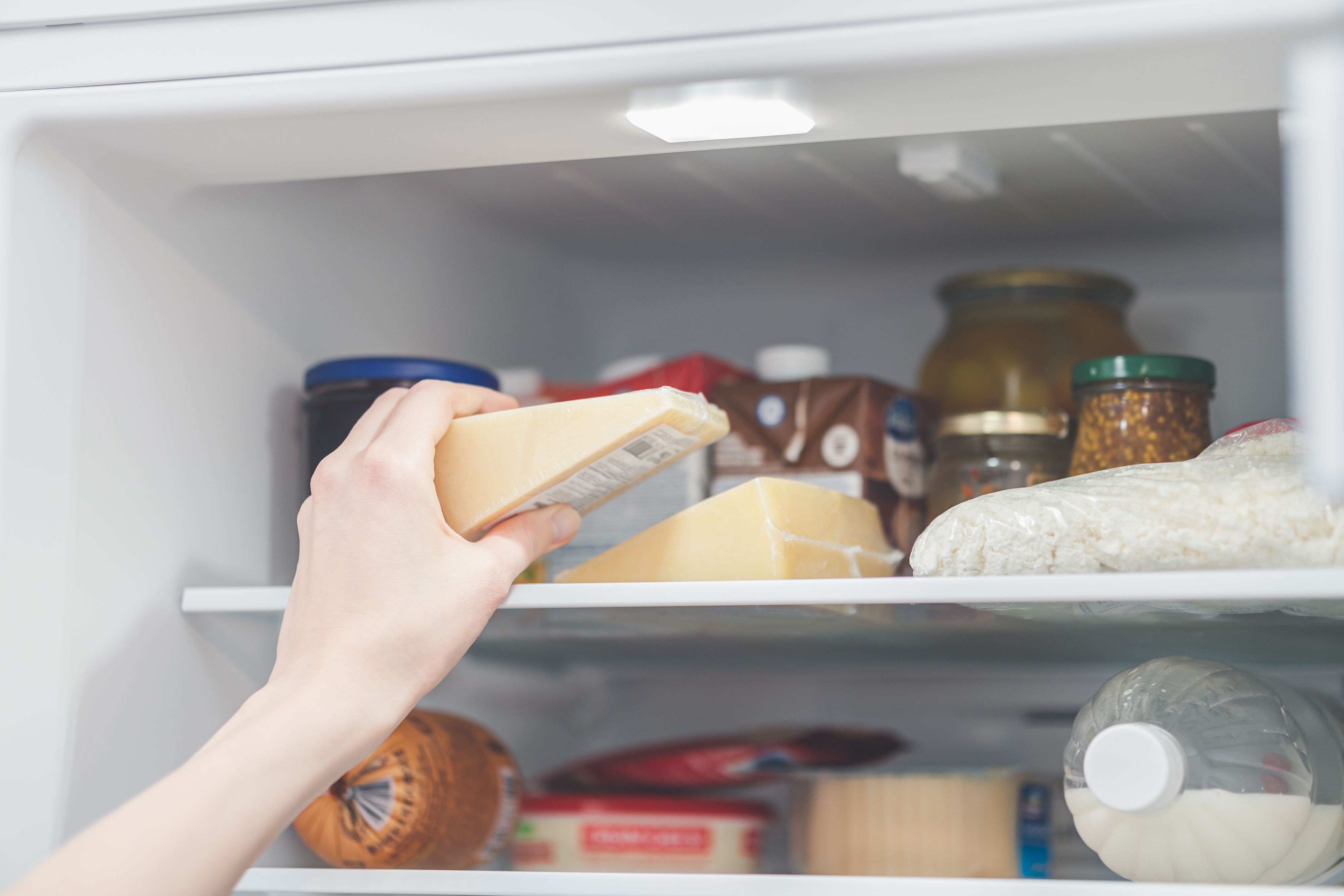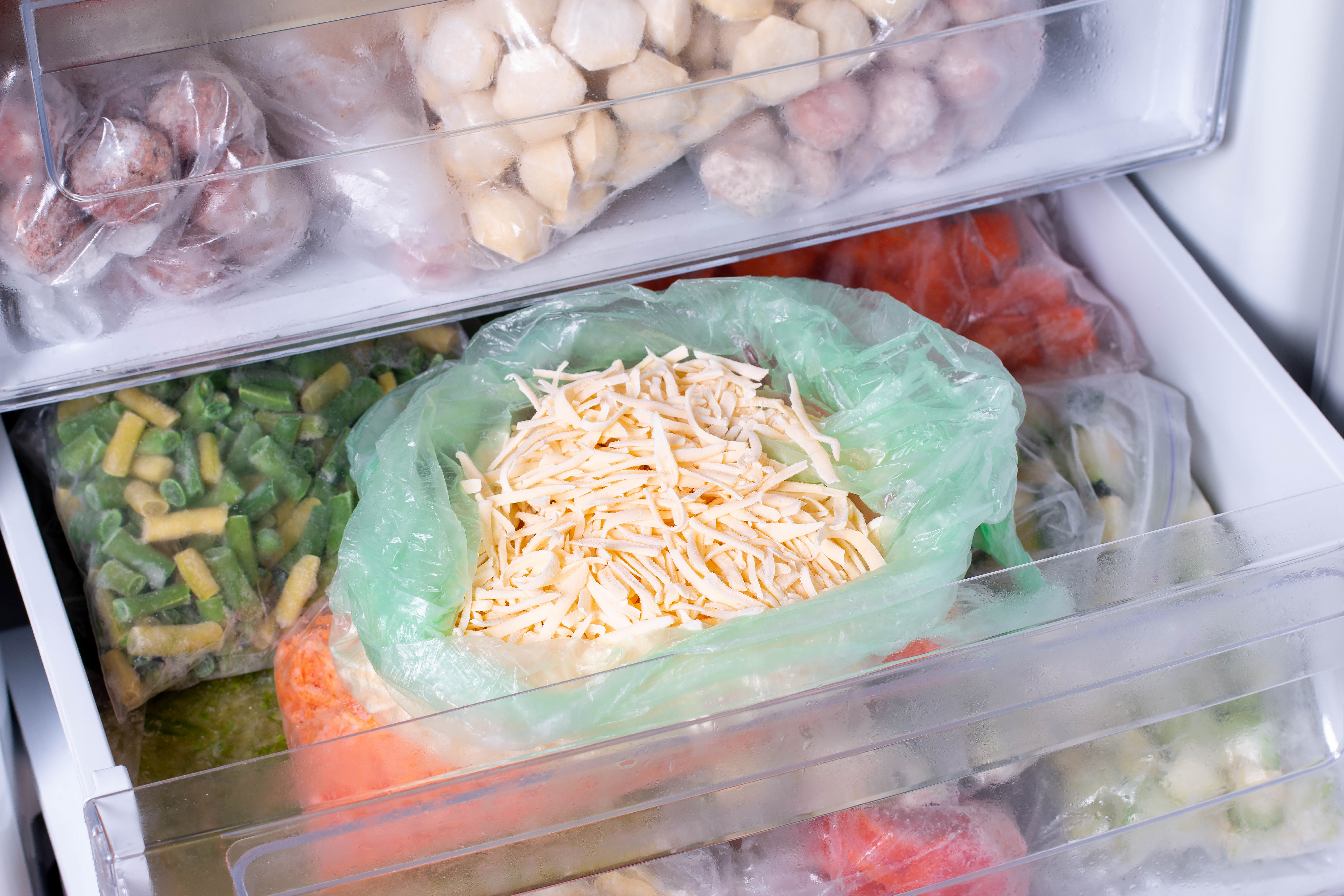Free digital copy
Get Speciality Food magazine delivered to your inbox FREE
Get your free copy
For foodies, visiting a cheese counter and buying artisan cheese from a specialist is pure pleasure. The sheer, vast array of epicurean delights. The opportunity to sample and taste varieties they might not have heard of before, guided by staff who know what they’re talking about. The satisfaction of unwrapping each piece carefully from its paper or wax packaging.
Speciality cheeses have been made with the utmost care and detail, by folk who source the very best quality milk (sometimes they even know the names of the cows), maturing each and every piece to the peak of perfection, so it can pride of place on cheeseboards, or become the beating heart of a meal.
Consumers, who are increasingly choosing at-home dining experiences and ‘treat moments’ over dining out, are finding their feet in delis, farm shops and food halls, and they expect guidance and knowledge from the expert at the counter. Can cheese be frozen? How long does cheese last in the fridge? What are the best ways to store cheese? These are all burning questions they want to know the answers to before parting with their hard-earned cash.
As a fine food retailer, these moments are your time to shine. To build engagement and trust with shoppers, ensuring they’ll return time and time again. Train your staff in all aspects of cheese care beyond the counter. You might even want to print cards or leaflets for customers, detailing the very best ways to care for and appreciate their edible treasures.
In a word, yes. Cheese does go bad. But shoppers should be encouraged to use their senses to guide their decision over whether or not to consume suspect cheese, rather than relying on best before or sell by dates.
Visually, furry white mould might put some off, especially when handling soft cheeses such as Brie or Camembert-types, but this is to be expected as the cheeses age, and can be cut away, with the resulting cheese perfectly fine to eat.
White, or even green-blue patches on hard cheeses, can be cut away, leaving the rest of the cheese to enjoy. If fuzzy mould of other colours is noticed, that’s probably a sign the cheese has gone off.
In terms of smell, milder cheeses that take a stronger turn, giving off hints of ‘blue’, could well be past their best. And if blue or mould-ripened cheeses unleash overwhelming whiffs of ammonia, these too might be beyond the point of no return, and no longer safe to eat.
In terms of taste, some cheeses become much more pungent as they age (which is appealing to connoisseurs) but if they present with a bitter, acrid, unpleasant flavour profile, it’s probably best to steer clear.

Cheese can last a long time in the fridge depending on the way it’s wrapped, the temperature, conditions, and also the type (hard, blue, washed-rind, soft).
Hard cheeses such as Cheddar and Parmigiano Reggiano have had much of their moisture removed, and often a good deal of salt added to aid their preservation. They will quite happily sit in the fridge, stored correctly, for weeks, if not months. Just keep an eye on them, rewrapping at regular intervals, looking for signs of spoilage, and cutting away any obvious mould.
Softer cheeses, like goats’ cheese, cottage cheese, Brie, blue cheese, and those with a washed rind, contain much greater amounts of moisture, and can be breeding grounds for bacteria. Once opened, a good guide is three days to use cottage cheese and very fresh soft cheeses, and a week for other soft cheeses.
If you really think cheese has gone bad, we don’t advise eating it – your stomach might not forgive you for a few days, especially if you’re dealing with a softer cheese. Hard cheeses with a touch of fuzz or mould patches should be perfectly fine to eat once you’ve scraped off or cut away the offending areas. Use your taste buds to guide your judgement. If the cheese doesn’t taste right, get rid of it.
Aim for between 4-5C, which is the average temperature of a domestic fridge. If you have a cool space around this temperature in your home (for example a clean cellar) you could also store harder cheeses such as Cheddar, Gruyere and co, here for up to a week domestically, turning and checking them regularly to keep an eye on their condition.
Many people store cheese in clingfilm, which is fine in the short term, but left longer than a couple of days and it actually causes the cheese (which is a living, breathing thing) to sweat, which can, in turn, encourage mould growth.
The best way to wrap and care for your cheese is by sourcing breathable, professional waxed cheese paper, which has been designed to keep it fresh for as long as possible. If this isn’t affordable, good old kitchen foil is fine, just make sure it’s pressed neatly against all surfaces of the cheese to create a seal.
Some people love the aroma of a stinky cheese…but they’ll often divide a household! Wrap blue, washed rind and mould-ripened cheeses in waxed paper or foil, and store in the fridge in a tub that is completely airtight. It’s worth investing in a good quality version, as some cheaper ones (usually bought at supermarkets or discounters) don’t have a tight enough seal to prevent the smell drifting around the fridge. Adding a sugar cube to the container, some say, absorbs a bit of the stinkiness.
A rapid loss of moisture is usually to blame for hard cheeses cracking. They’ll often appear darker at the edges too. As a quick fix, you could add some damp kitchen towels to a tub with the cheese (they shouldn’t touch it), and pop in the fridge for a few days to encourage some humidity, preventing the rest of the cheese from drying out. Rubbing the surface in butter or oil could also stop the dry spread. Don’t waste dried hard cheese. Use it in cooking.

There are lots of urban myths and housewives tales around freezing cheese, with plenty of people saying it spoils the end product. But we say yes, you can safely freeze cheese. In fact, if you don’t think you’ll be able to eat it in time, and can’t use it in cooking, we actively encourage freezing cheese to prevent wastage.
You should be prepared though, for the taste and texture of some cheeses to change, particularly if you’re freezing soft, creamy cheeses, which contain lots of moisture.
In these cheeses, ice crystals form in the freezer, melting as the product thaws, leaving you with something that no longer has that creamy, unctuous mouthfeel. We recommend only freezing soft cheeses if you plan to use them in cooking later on, such as in a sauce, or over a pizza or lasagne.
Well wrapped hard cheeses, or even grated hard cheeses, fare much better but, again, we recommend using these for cooking, as all cheese tastes best direct from the deli.
The best cheeses to freeze: Cheddar, Mozzarella, Stilton, Hard goats’ cheese
As we’ve already explained, a good rule of thumb is to avoid freezing soft cheeses, unless they’re going to be used in cooking. Aged, hard cheeses, like Gruyere, Cheddar and Parmesan have a long shelf life in the fridge, and that’s the best place to keep them in top condition.
The worst cheeses to freeze: Brie, Camembert, Cream cheese, Ricotta, Cottage Cheese, Parmesan, Feta, Mascarpone
As freezing stops bacterial growth, cheese can be frozen for quite a long time – but we recommend using within six months. Beyond this the cheese’s taste and texture can be very significantly altered.
If you’re going to freeze cheese, we recommend steering clear of putting whole wedges and blocks in the freezer. The best results will come from freezing grated and sliced cheeses for cooking and grating.
To freeze grated cheese, divide it into sealed freezer bags, remove excess air and date and label. Freeze slices of cheese by separating them with greaseproof paper, before sealing in a bag or container, again with the date noted.